In the second part of our Christopher Paolini interview, the New York Times Bestselling Author talks about his writing process and what he learned from working on his new epic science fiction book To Sleep in a Sea of Stars (in Dutch: Slapen in een Zee van Sterren). Christopher will also write the screenplay for the upcoming movie based on the book, together with his sister. Read about creativity, drawing maps, book tours in times of social distancing and what’s next in the Fractalverse!
Also read our Interview with Christopher Paolini – Adventures in the Fractalverse (Part 1).
- So about the characters in To Sleep. Was the voice of the main character – Kira – easy to find?
It was very hard to find. That was because I didn’t have the structure of the story in place initially and the structure of the story was dependent on who Kira ultimately is. That took a long time. At one time I debated making her much younger, making it almost a YA book. But that wasn’t what I wanted to do and that wasn’t what the story was. I did find her voice and I like her voice. She’s kind of prickly and she has her flaws. She’s a little bit impulsive at times. But she’s a good person, she tries to do the right thing.
- Was she your favourite character to write?
No, definitely Gregorovitch. He’s just so much fun, and he does some interesting things linguistically. So the writer in me enjoyed writing him and his dialogue.
- What would you like readers to take away from this story?
When readers get to the final page and paragraph, even the final sentence, I hope that they’ll walk away from this book with a sense of hope and optimism, as I said. A tingle down in their spine at what’s just happened in the story. Perhaps some awe and wonder. And a bittersweet ache that the story is actually finished.
- That is what good books are supposed to do.
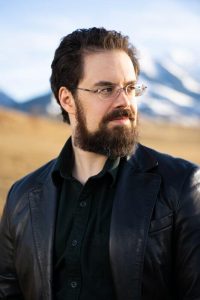
Exactly. To me the bittersweet ending is the best ending of all. Life is not 100% happy, but it’s not 100% sad either. It’s this weird mix of joy and sorrow and awesomeness and tragedy, all in one amazing mix. To me, when I think of all the books and stories that have touched me, they’ve all had a touch of the bittersweet in them.
- Yeah, so it reflects the human experience a bit, you would say.
I think so.
- What would you say is the most fun about the writing process for you?
Getting to bring to light things you’ve been imagining and dreaming for ages. And then hopefully evoking those emotions in readers. I think that the great task of art; I think that the greatest thing art can do is successfully evoke an emotion in the audience. The reason I say that is because ideas are easy to convey, technical information is easy to convey. Even truth in some ways is easy to convey. But you can read those things without an emotional reaction. To successfully evoking the emotion you’re trying to evoke in your audience is very hard. So that’s really awesome, to see people react the way you want them to.
But then during the actual writing, the story affects me. When I’m writing a battle sequence for a week or two, I’m grouchy. When I’m writing happy scenes, I’m happy. If my characters are having a hard time, I’m having a hard time. That could be a little daunting when you’re writing a long book where your characters are having a hard time the whole while.
- In the process of writing, did you manage to write every day? Do you write every day still?
I try to write every day. When I’m not writing, I’m plotting. And when I’m not plotting, I’m dealing with business related to the book. But I try to write every day, even if it’s just a page. This is because you get out of practice if you don’t and personally, I’m very aware of the amount of pages it takes to make a book. I get very frustrated when I’m not seeing that page count going up. Because then I know how long it’ll take me to finish the book.
- How do you keep yourself motivated through that?
I’d say the biggest motivation is that… when I read or watch or experience a good story, it affects me strongly. I get a tingle down my spine, I get this emotional reaction. I really want to share that with people and even create that for myself. I’m also aware that life is short and there are a lot of stories I want to write. My fear of not being able to tell those stories in a timely manner is stronger than my fear of sitting down and starting something.
- I’ve really enjoyed your ChrisP Writing Tips on YouTube. They are geared towards younger writers, sharing writing advice. What advice would you like to give your younger self, when you were just starting out writing Eragon?
If I could say one thing to myself when I was starting out, it would be that just because you write a bad word, or sentence, or paragraph, or scene – or even a bad book – it doesn’t make you a bad writer. The reason I say that is because if you look at published examples of editing from writers who’ve been working for decades, you’ll see that even these very skilled writers still edit and rip apart their prose to make it better. It’s a natural part of the process. And just because you need to do that and need to fix something, doesn’t mean you’re a bad writer. What would make you a bad writer is when you know something’s wrong – or when someone you trust informs you that something is wrong – and you don’t put the work in to fix the problem. These days, if I write something and it doesn’t work the way I want it to, I don’t get discouraged. I kind of shrug my shoulders and go “okay, let’s fix this.” It is part of the process.
Christopher Paolini interview: ChrisP Writing Tips
In the military there’s a saying which is “embrace the suck”, which I really like. Embrace the things that are difficult, don’t avoid them. That’s how you get things done. And that’s how you get to where you want to go. We never get to our goals exactly the way you expect. The path always wanders. And that’s okay. Goals themselves are not that important. I mean, they’re important, but they don’t help you do things.
For example, your goal might be to write a book. Okay, great. But that doesn’t do anything for you. What does something for you is to set up a habit in your life, a practice, a system, which allows you to get to your goals. Your habit might be writing every single day. It might be horrible, but I’ll write every single day. I’m going to write one page a day for the next three years. And you know what? You’ll have a book within that time period. It’s good to have goals, but it’s more important to set up habits in your life that get you to the places you want to get. You can’t predict exactly how that’ll happen. But in the long run, it’s a much better approach than always focusing on this one specific thing you’re trying to get to and then not doing the stuff that actually matters.
- Were there things about the writing process you learned while writing To Sleep?
Oh, definitely. The prose style is different than fantasy, so that’s a big difference. Structurally, there’s a complete story. It’s a full story with a beginning and an end in one novel, which I haven’t done before. So that’s something new. On one hand, it was harder because you don’t get to know the characters as well as you do over the course of a series. There isn’t the same space. So that was one slight difficulty, but on the other hand it was a wonderfully liberating experience to be able to conclude a story in one book. I learned a lot about pacing: it’s a long book, it’s structured differently than my other books I have chapters, subchapters and section breaks in the book. And then of course learning to write about technology and all that.
- Must be very different.
Yes, but also fun. That’s the great thing about this profession, it lets you constantly learn. You’ll never reach the point where you know everything. You will always reach another level.
- What would you think your future holds when it comes to writing within the Fractalverse? Are you working on something new or will you take some time off?
Time off, what is that? I’ve already finished a short sequel-novella set after To Sleep in a Sea of Stars. I have also been revising a short prequel novel, which I wrote back in 2013. It needed some work, but now that the main book is done, I’m back on revising. That should be done in a month or two. As was announced yesterday, actually, there has been film deals signed for the book. My sister and I will be writing the screenplay and executive producing. We signed the deal with two companies, “Made Up Stories” and “Snoot Entertainment”. We’re very excited to be working with them.
- That’s amazing. So you’ll be working close on the movie.
Oh yeah. There’s no guarantee, but after the experience on the Eragon film, I said if there was to be another adaptation of my material, I wanted to be much more closely involved. And this is the opportunity to do that.
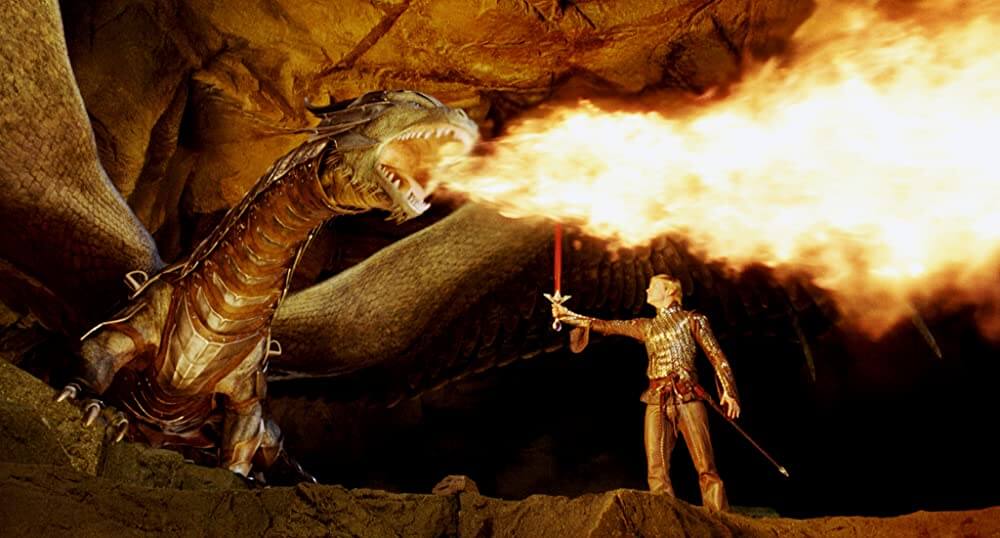
- As a screenwriter you’ll be able to guide them and keep the movie close to the source material.
Yeah, although movies are different from books. A certain amount of change is inevitable. And of course scripts are a different art form than books. So it’s going to be a learning experience and a challenge. My sister and I have done scripts in the past, so it’s not a completely new thing. I’m looking forward to it.
- In these times with a pandemic going around, a lot of people being stuck in their homes, what’s it like to promote To Sleep? What kind of challenges do you face with promoting a book in these times?
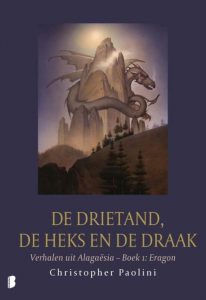
It’s very different. I was touring last year with my short story collection The Fork, the Witch and the Worm (in Dutch: De drietand, de heks en de draak), which actually brought me to The Netherlands. I always enjoy visiting there; I was expecting I’d be there now, if not for the coronavirus.
So it’s very different, I’m not sure ultimately what this means for the book. Sales and promotion have been sort of thrown out the window, movies have been struggling, everything has been kind of different. But people have been reading books from their home and that’s wonderful. And doing these sorts of online promotional events have made me reach people I previously haven’t. I’ve been touring for almost twenty years, I’ve been doing events for the majority of my life. But the past year made me realize most people have never seen those events, because they were in person events. While promoting To Sleep I realized this stuff normally hasn’t been online, so I’m making an effort with my YouTube channel, social media in general. It’s a great way to stay connected with people.
Also, we recently released a song called Sea of Stars, which was sung by Jennifer Hale. She read the English audiobook of To Sleep in a Sea of Stars. She’s a wonderful voice actress and a wonderful singer. She did this in-universe song, which is on my YouTube channel and hers and on my website Paolini.net. It really captures a lot of the feel that I was going for with the book.
- Did she write the song, or was it a collaboration?
She and her producer co-wrote the lyrics and song itself. It really impressed me, because I’ve given them an idea for another song which they recorded. We’re going to release that as well. They did this on their own and it really captures the feel of the story. It told me that I made the right choice in picking Jennifer to read the audiobook, because she really got what I was trying to do.
Christopher Paolini interview: Sea of Stars – Jennifer Hale
Have you read To Sleep yet?
- Not yet, I have only just received it a few days ago. I’ve made a start in it, though. I think it’s fascinating so far. I especially liked the map on the first few pages. With every fantasy novel comes a map, but in science fiction I’m not really used to it. It was great to see this three-dimensional map of the solar system the story takes place in.
Thank you, that was a pain to draw. I had to figure out how to do that. I don’t know if it’s in your version of the book, but in the English version there are seven maps throughout the whole book. You should have some other images in the book as you go through.
- So there’ll be more to discover for me!
There’ll also be more of the art online as we go forward. So if it’s not in your edition, it’ll be available online at some point also.
- Thank you so much for the interview and making time for us. It was very interesting to hear you talk about To Sleep.
It was wonderful talking with you, thank you for the wonderful questions. I look forward to when the interview comes out.
Christopher Paolini is the author of the international bestsellers Eragon, Eldest, Brisingr and Inheritance, as well as The Fork, the Witch, and the Worm. His debut science fiction novel – To Sleep in a Sea of Stars – is now available. He resides in Paradise Valley, Montana, USA.
Slapen in een Zee van Sterren / To Sleep in a Sea of Stars is available in bookstores everywhere.
Christopher Paolini interview – Modern Myths Shop
Slapen in een Zee van Sterren – € 29,99 Bol.com
Slapen in een Zee van Sterren – € 29,99 Amazon.nl
Paperback: To Sleep in a Sea of Stars – € 16,99 Bol.com
Hardcover : To Sleep in a Sea of Stars – € 22,93 Bol.com
Paperback: To Sleep in a Sea of Stars – € 13,79 Amazon.nl
Hardcover: To Sleep in a Sea of Stars – € 17,13 Amazon.nl
Do you want to read more interviews like our Christopher Paolini interview? Go to our section Interviews!
Christopher Paolini interview: © 2019-2024 Modern Myths

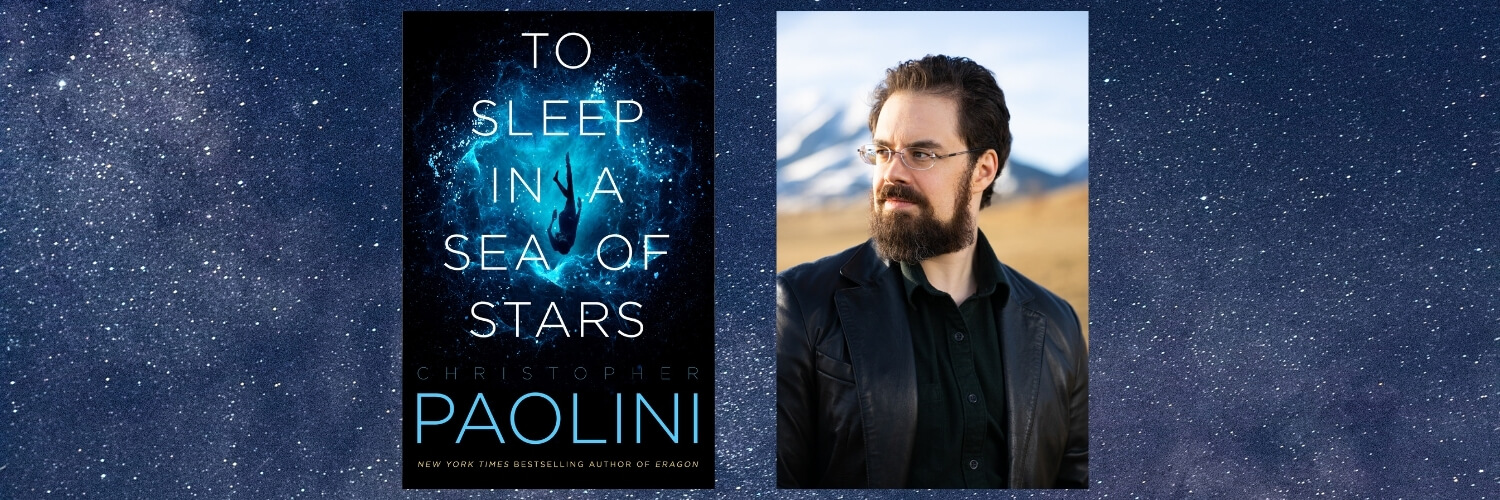

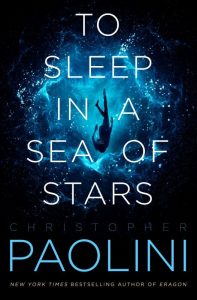
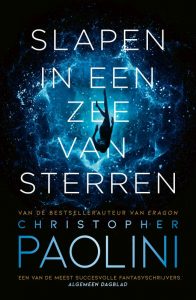
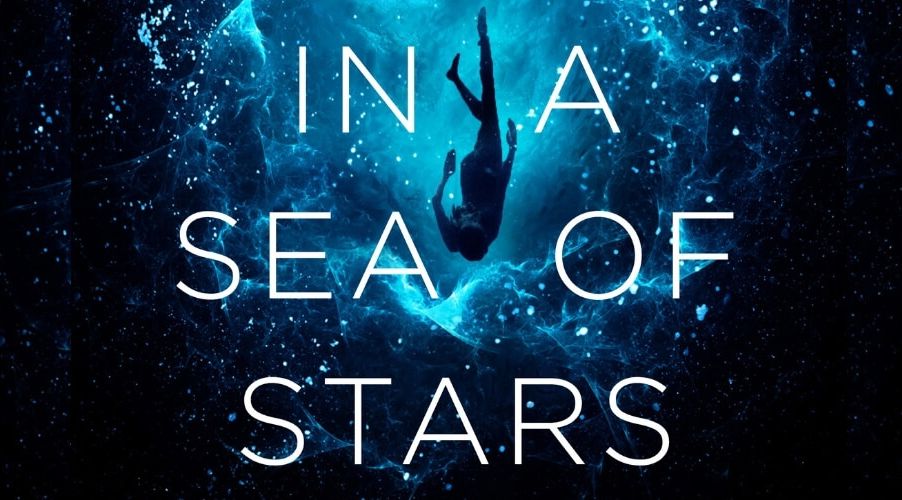

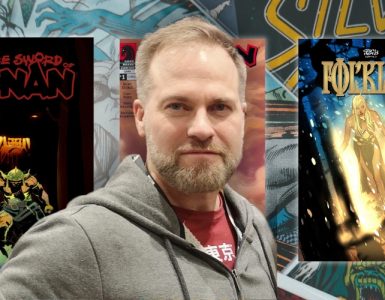
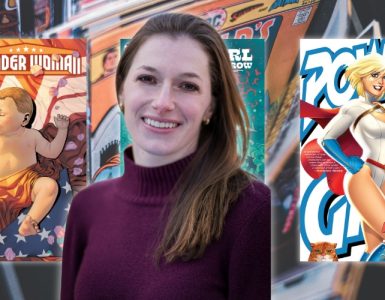



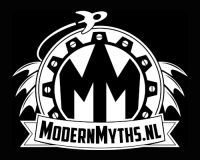
Reactie plaatsen